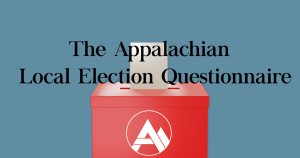How will they promote better, affordable housing? Municipal candidates answer
October 28, 2021
Leading up to the Watauga County 2021 municipal general election Nov. 2, The Appalachian sent each candidate the same questions via email, asking what motivated them to run for their positions and how they plan to tackle other issues. Read their responses to how they will promote better and more affordable housing in Boone here.
Tim Futrelle (Mayor)
I will invite community members and leaders to come together to create single-family style community developments for affordable and workforce housing and student housing areas along new and expanded AppalCart routes to reduce traffic. I will also work to rebuild a friendly and cooperative working relationship with the county. This could lead to opportunities for affordable workforce and student housing. This group would discuss ideas like community land trusts, among others.
Todd Carter (BTC)
Access to safe, affordable housing includes workforce housing, student housing, housing for those with disabling conditions, housing for our elderly population and housing for no-to-low-income families and individuals.
There have literally been decades of work done on the issue of affordable housing in Boone. I am already looking into that past work, identifying the challenges and looking for opportunities. If there is any “low hanging fruit” to be had to address affordable housing issues in Boone, I will start there.
Beyond being a passion of mine, housing access is something that I have been and continue working on. I know the struggles of low-income wage earners trying to secure housing; trying to move families out of homelessness; students without transportation that cannot afford to live in Boone; and me. Despite working, shopping and organizing in Boone since 2011, I, as a single income professional, struggled to find an affordable place to live in town. It took over nine years, but I finally did it last November, thanks to Reggie Hunt and Alfred Glover.
Currently, I am on a planning committee for a series of housing forums that will seek input from town residents and stakeholders, as well as work toward solutions. I believe that the answer lies with a model like the Athens Land Trust where the town and county work together, working with a land trust that will both address immediate housing needs and plan for the future.
Utilizing this model, my plan is to develop more multi-family housing properties similar to Watauga Green, the last one, to my knowledge, to be built in Boone. This model serves individuals and families earning up to 40, 50 and 60% of the county median income. These units house students, working families and residents on a fixed income.
I’d like to require existing student developments, as well as new ones, to accept housing choice vouchers for low-to-no-income and formerly homeless students who are only able to afford housing using those vouchers.
Dalton George (BTC)
Some will claim that our affordable housing crisis is an issue solvable overnight. Needless to say, they are wrong.
The lack of affordable workforce and student housing is a complex issue that has metastasized for decades with prices skyrocketing due to the evaporation of land availability. One of the most effective solutions to solve this problem is to establish a community land trust that invests into the economic security of residents rather than the profits of big developers.
Unfortunately, municipalities are extremely limited in their ability to truly tackle the issues of an inequitable and predatory housing market. Introduction of a public housing entity to compete with the private sector will help our local housing market by creating a more level playing field. A project like this would slowly implement a community-wide solution to housing.
In the meantime, the immediate problems we face must be addressed sooner than later. Affordable housing may require long term solutions, but addressing substandard housing conditions can be done now. Right now, some of our neighbors live in unsafe, uninhabitable, and debilitating conditions. This reality should not exist, especially not when it comes to the basic human right of access to adequate housing.
Expansion of the Town’s Minimal Housing Code incorporates additional protections for at-risk tenants while setting clear expectations about our community’s housing beliefs. Predatory housing practices must also be addressed, and I spearheaded a push for the North Carolina Attorney General to investigate local allegations. Oversight is important to ensure fair practices and I promise to hold all those in our community accountable, myself included.
Benjamin Ray (BTC)
Because real estate is my background, housing is one of my main passions: affordable housing rental options for our local professionals, and good living conditions for our off-campus student community. I have already promised to donate the 8k/year that being on the council pays, to help set up a student liaison that fields comments/complaints from students as it relates to their housing conditions/ landlord relationship, and relays this to the council/town for better oversight/ follow-up with student issues.
Virginia Roseman (BTC)
The incomes of our workforce haven’t kept up with the high cost of housing here. There are many moving parts to this issue, so there is no single solution.
Multiple times, I have personally questioned developers why their new developments were only rent-by-the-room. The response is always the same: “If there are more rent-by-the-room developments, college students will choose them over traditional apartments, therefore causing prices to fall for less-desirable traditional apartments, which will then become affordable housing for working families.” Well, fast-forward seven and eight years, and that has not happened. With ASU growing so much, how is that ripple effect the developers talk about supposed to happen? It hasn’t, and it won’t.
The university is the entity that most needs our workforce…it could not function without our workforce. I think the university should want to have their workforce closer rather than commuting in from Tennessee or other counties. The university should play a role in addressing this by tackling workforce income, the supply of affordable workforce housing, and also the supply of student housing. Working with the town, we could offer incentives of tax breaks and appropriate bonuses to housing developers that help our workforce, as well as pursue grants. Additionally, though it would not be an overnight solution, we and future councils can also continue to tweak the UDO to help eliminate developer loopholes and guide Boone to a future that is friendlier to our workforce.
Eric Wooldridge (BTC)
Every citizen should be concerned about the long-term trajectory of affordable housing and Boone’s ability to maintain a strong workforce. Affordable housing should be addressed in two ways: 1) incentives; and 2) partnerships.
Developers that present projects that provide for affordable housing by way of obtaining state or federal tax housing credits are fast tracked through the Boone zoning and permitting system to the extent possible. In addition, we must consider reducing or eliminating any associated development fees for these projects to the extent allowed by law, thereby making Boone an in-kind partner.
Establish a formal affordable housing partnership between the Town of Boone, Watauga County and ASU. Hire professional staff dedicated to realizing affordable housing within the town and county. There are communities making great strides in the creation of affordable housing, but success is predicated on partnerships, staff capacity and the procurement of grant funding. If voters would like to learn more about workforce housing, I suggest reviewing these two resources:
Low-income housing tax credits: https://www.nchfa.com/rental-housing-partners/rental-developers/rental-development-financing-options/low-income-housing-tax-credits
and Workforce Housing Program: https://www.nchfa.com/rental-housing-partners/rental-developers/rental-development-financing-options/workforce-housing-loan-program
Eric Brown (BTC)
Housing improvements and its affordability best function in a free market where all have the opportunity to decide whether to rent or own outright. A competitive community provides for the changes Boone envisions and what leaders propose as a fit for an active student, working professional and senior respecting relationship moving forward in a creative way that shows results.
Christy Cook (BTC)
Housing costs in Boone have risen much faster than incomes and that has created a great financial stress on the majority of our citizens, families and students. This is not an easy question and there are certainly no easy answers but it seems to me as though a good place to start would be to first try to identify and address some of the barriers to affordable housing that may exist in our community such as local zoning regulations that could potentially impact affordable housing development, we might consider possible tax incentives and/or other development incentives, and we should explore best practices and strategies currently being utilized in similarly situated communities that that have or may be in the processing of successfully addressing their local housing challenges. To make a long answer short, appropriately addressing the affordable housing challenges in Boone will take all of us working together and rowing in the same direction.
Becca Nenow (BTC)
Alongside bike-ped infrastructure, affordable housing is a priority of mine, and I’m excited at the prospect that Todd Carter and Dalton George will serve on town council as they have both been on the ground doing this work for years. I have been involved with an emerging forum series on affordable housing and continue to be a part of the local conversation around housing as well as look to examples set by other towns like Chapel Hill approving a $10 million dollar bond to preserve and build affordable housing and Carrboro including incentives for developers and language around it in their Land Use Ordinance.
Edie Tugman (BTC)
Edie Tugman did not respond to The Appalachian’s questions.












